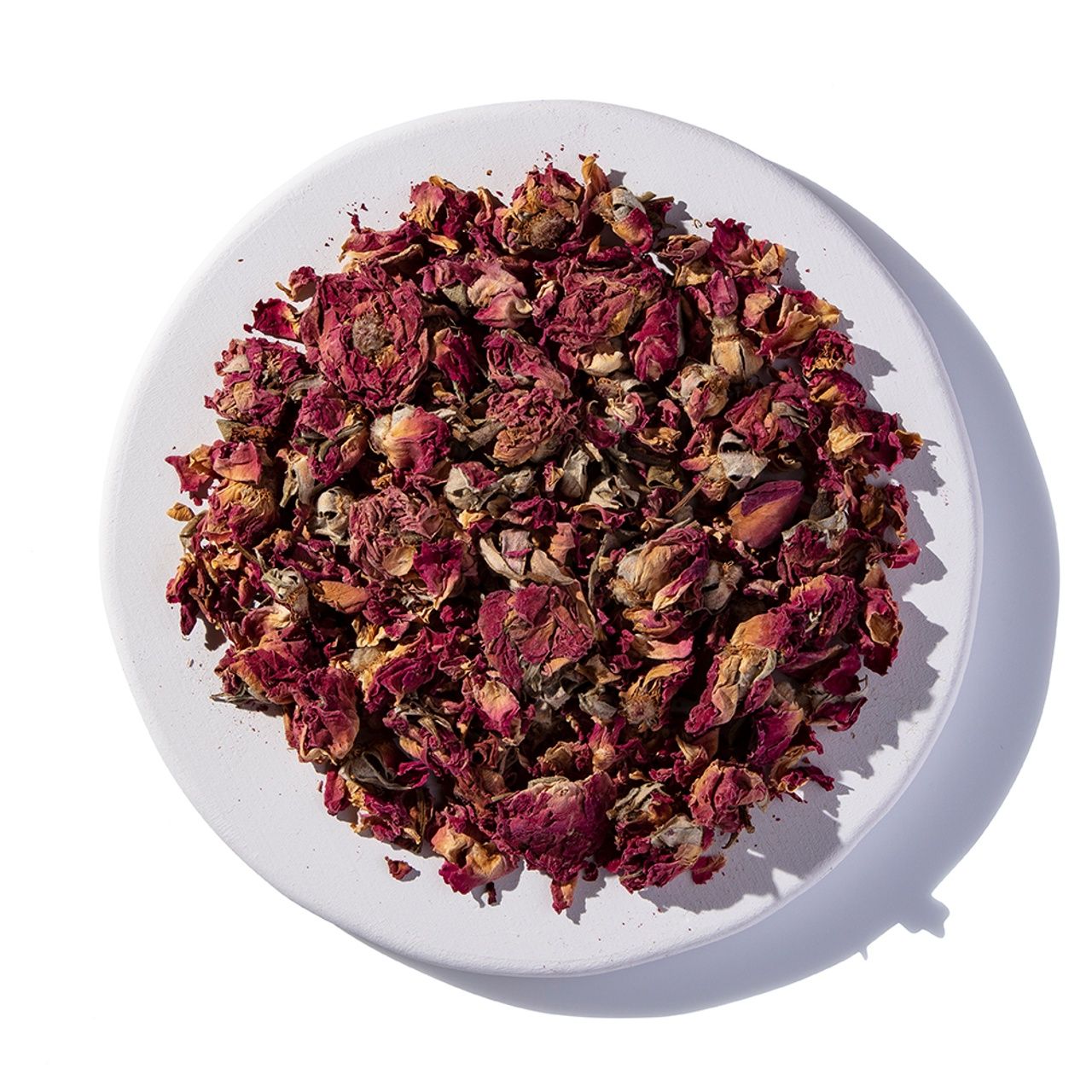RED ROSE BUDS AND PETALS ORGANIC
RED ROSE BUDS AND PETALS ORGANIC
Stop and smell the roses with these beautifully aromatic buds and petals. They bring a stunning scent and subtle sweetness to everything from tea to homemade beauty products. Rose petals are rich in polyphenols, antioxidants that help support overall health and well-being.
Caffeine-Free
Rose bud tea is an herbal tea that doesn't contain any caffeine. That means you can enjoy a cup of this tasty tea whenever you want without worrying about disrupting your natural sleep cycle or triggering changes in your nervous system. It's a great tea for people who want to reduce their consumption of caffeine or for people who are sensitive to the side effects of caffeine.
Be careful when drinking herbal blends containing rose bud tea. Only one hundred percent rose bud tea is naturally caffeine-free. Any blends containing black tea or green tea leaves will contain some form of caffeine. Stick to fully herbal blends or pure rose bud tea for the optimal caffeine-free benefits.
Antioxidant Benefits
While rose petal tea doesn't contain as much vitamin C as rosehips tea, it may still be beneficial for immune health. Rose bud tea contains high concentrations of antioxidants that may help to fight inflammation caused by free radicals. Inflammation is a normal body defense, but when it becomes a chronic condition, it can lead to several health problems. Free radicals cause inflammation and oxidative stress that has been linked to premature aging and severe health problems.
Rose tea mainly contains polyphenols — powerful antioxidants that may help to support the immune system and prevent serious disease. In fact, research published in the Journal of Food Science found that rose petals contain as many polyphenols as green tea. Additionally, this tea contains gallic acid and anthocyanins that may offer benefits for the urinary tract, memory recall, and vision. It's important to note that essential oils and rose bud extracts contain significantly higher amounts of these compounds compared to petals brewed in hot water.
Menstrual Pain Relief
Millions of women suffer from painful periods including menstrual cramps, heavy bleeding, and general discomfort. Rose tea may offer some relief to women who suffer from period cramps. A study published in the Journal of Midwifery and Women's Health examined the effects of rose tea on dysmenorrhea — menstrual cramps — in young women. The study consisted of 130 teens who were divided into a placebo group or an experimental group. The experimental group drank rose tea daily for 12 days beginning one week before their menstrual period and the experiment lasted through each participant's 6th menstrual cycle. Participants who drank rose tea demonstrated significant improvements in pain, distress, and anxiety compared to the placebo group.

